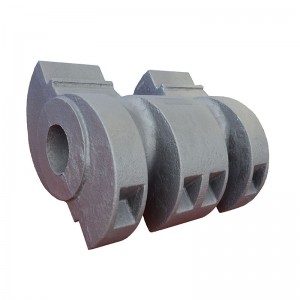- Afrikaans
- Albanian
- Amharic
- Arabic
- Armenian
- Azerbaijani
- Basque
- Belarusian
- Bengali
- Bosnian
- Bulgarian
- Catalan
- Cebuano
- China
- China (Taiwan)
- Corsican
- Croatian
- Czech
- Danish
- Dutch
- English
- Esperanto
- Estonian
- Finnish
- French
- Frisian
- Galician
- Georgian
- German
- Greek
- Gujarati
- Haitian Creole
- hausa
- hawaiian
- Hebrew
- Hindi
- Miao
- Hungarian
- Icelandic
- igbo
- Indonesian
- irish
- Italian
- Japanese
- Javanese
- Kannada
- kazakh
- Khmer
- Rwandese
- Korean
- Kurdish
- Kyrgyz
- Lao
- Latin
- Latvian
- Lithuanian
- Luxembourgish
- Macedonian
- Malgashi
- Malay
- Malayalam
- Maltese
- Maori
- Marathi
- Mongolian
- Myanmar
- Nepali
- Norwegian
- Norwegian
- Occitan
- Pashto
- Persian
- Polish
- Portuguese
- Punjabi
- Romanian
- Russian
- Samoan
- Scottish Gaelic
- Serbian
- Sesotho
- Shona
- Sindhi
- Sinhala
- Slovak
- Slovenian
- Somali
- Spanish
- Sundanese
- Swahili
- Swedish
- Tagalog
- Tajik
- Tamil
- Tatar
- Telugu
- Thai
- Turkish
- Turkmen
- Ukrainian
- Urdu
- Uighur
- Uzbek
- Vietnamese
- Welsh
- Bantu
- Yiddish
- Yoruba
- Zulu
Nov . 18, 2024 14:35 Back to list
Casting Techniques for Precision Machine Base Components and Their Applications
The Importance of Machine Base Casting in Manufacturing
Machine base casting is a crucial component in the manufacturing industry, providing a stable foundation for various types of machinery and equipment. The process of casting involves pouring molten metal into a mold to create a specific shape and size, which is essential for ensuring the integrity and durability of machines used in production.
One of the primary advantages of machine base casting is its ability to absorb vibrations and reduce noise during operation. This is particularly important in industrial settings where heavy machinery is utilized. By having a well-cast base, vibrations are minimized, leading to a smoother operation and prolonging the lifespan of the equipment. Additionally, a stable base enhances precision, ensuring that components are aligned correctly and operate efficiently.
The materials used in machine base casting can vary, with cast iron and steel being the most common choices. Cast iron is favored for its excellent wear resistance and ability to withstand high temperatures, making it ideal for heavy-duty applications. On the other hand, steel provides superior strength and flexibility, which can be essential in specific industrial contexts. Each material brings its own set of properties that can be tailored to meet the demands of different manufacturing processes.
machine base casting

Furthermore, the design of the machine base itself plays a vital role in its effectiveness. Engineers must consider factors such as load-bearing capacity, thermal expansion, and surface finish. A well-designed machine base will not only support the machinery effectively but also facilitate maintenance and reduce wear and tear over time. Innovations in computer-aided design (CAD) and simulation technologies have allowed manufacturers to create more efficient and effective machine bases, optimizing performance and reducing costs.
Environmental considerations are also becoming increasingly important in the casting industry. Manufacturers are now focusing on sustainable practices, seeking to reduce waste and emissions associated with the casting process. This has led to the adoption of new technologies and methods, such as 3D printing, which can significantly minimize material waste and improve energy efficiency.
In conclusion, machine base casting is an integral part of modern manufacturing that cannot be overlooked. The advantages it offers in terms of vibration absorption, precision, and durability make it essential for the performance of industrial machinery. With ongoing advancements in materials and technologies, the future of machine base casting looks promising. Companies that invest in high-quality base casting will likely see enhanced operation reliability and efficiency, which are critical in today’s competitive market. As industries continue to evolve, so too will the standards and technologies surrounding machine base casting, ensuring its importance remains steadfast in the manufacturing landscape.
-
8mm Thin-Walled Cast Steel Manhole Cover Pallet Bottom Ring | Durable
NewsAug.04,2025
-
Premium Cast Iron Water Main Pipe: Durable, Corrosion-Resistant
NewsAug.03,2025
-
Durable Cast Iron Water Mains | AI-Optimized Systems
NewsAug.02,2025
-
High-Efficiency Propane Boiler for Baseboard Heat | Save Energy
NewsAug.01,2025
-
Premium Source Suppliers for Various Gray Iron Castings
NewsJul.31,2025
-
Durable Cast Iron Water Main Pipes | Long-Lasting
NewsJul.31,2025


